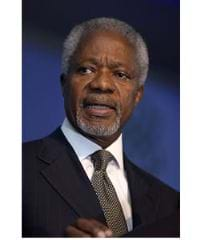One of the world's respected media outlets, The Economist, has an analytical wing, the Economic Intelligence Unit (EIU).
The EIU's outlook for 2008 was the central theme in its February 2008 analysis on Ghana. One of the questions the analysis tried to answer was, can the Presidential candidate of the National Democratic Congress (NDC), Prof. John Atta Mills, defeat the candidate of the ruling New Patriotic Party (NPP), Nana Akufo-Addo in December's Presidential elections?
Please read on:
"Ghana's political scene will continue to be dominated by the forthcoming presidential and legislative elections, due in December 2008.
The New Patriotic Party (NPP) government, led by the President, John Agyekum Kufuor, will face increasing internal tensions in 2008, as those not selected to succeed him as the NPP's presidential candidate at the party's Special National Delegates' Congress on December 22, 2007 may establish their own parties or, run as independents.
Nana Akufo-Addo, the former Foreign Minister and Mr. Kufuor's rival for the NPP's presidential nomination in 2000, was selected as the NPP,'s presidential candidate for 2008, beating Alan Kyerematen, the former Trade and Industry Minister, who was allegedly the favoured candidate of President Kufuor.
The NPP will now focus on ensuring that rivalries highlighted during the candidate battle are subdued so that the party can present a united front to the electorate. Mr. Kyerematen appears willing to work within the NPP to preserve party unity, which will be key as he has substantial support within the party.
The main opposition party, the National Democratic Congress (NDC), has had an easier time in selecting its presidential candidate, Prof. John Atta Mills.
The apparent unity within the NDC is a relatively new development and indicates an awareness of the importance of public perceptions of the party that may prestage a more media savvy campaign than in previous elections.
However, it is unclear whether the 62-year-old Prof. Mills can beat the 'NPP's candidate in 2008.
Although undoubtedly capable, Prof. Mills does not represent the break with the past and the fresh start that many argue is needed to extend the NDC's appeal outside its traditional core of voters.
As a former Vice-President of an NDC government, he is linked to an administration that has been accused of human rights abuses and economic mismanagement. His record is further blemished by two previous presidential election defeats, in 2000 and 2004.
Ghana's political atmosphere is set to become more bellicose as elections approach. The NDC has been combative towards the government in recent months and is likely to become more so as the elections draw nearer.
The NDC's popularity is expected to remain strong, particularly in the north and east, and it will seek to extend this support base by appealing to the poor whom it believes are excluded by the NPP's policies with social welfare schemes.
The Economist Intelligence Unit expects the 2008 vote to be close, testing Ghana's young democratic institutions.
Although Ghana has a relatively good recent record of political stability, several factors may raise the possibility of civil disobedience in 2009, following the elections.
These include the NDC's determination to gain power after eight years in opposition, and its deep-seated distrust of the NPP; overlapping tribal, regional and party divisions; the likely closeness of the result; and inter-party sensitivities over electoral legislation such as the Representation of the People Amendment Act."
Source: MJFM








Leave a Comment